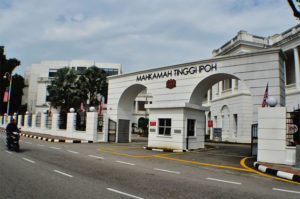The Perak High Court in Ipoh, Malaysia, recently extended a temporary restraining order that prevents two companies from proceeding with the construction of a hydroelectric dam on a river that is part of the ancestral territory of the local Semai people.

A news story last year on November 13, as well as a more recent one on April 28, provide the background. The Semai claim that the developers do not have the right to dam the Geruntum River. Their work on the project so far in the town of Gopeng is illegal, they argue. Three years ago, the Semai filed a court suit that named the two private companies— Perak Hydro Renewable Energy Corporation Sdn Bhd and Conso Hydro —plus a range of government agencies as defendants who had illegally taken away their land. Last October they also filed an injunction to stop all work by the companies on the project.
Furthermore, the plaintiffs claim that the companies, while trespassing on their lands along the Geruntum River doing their preliminary work, destroyed some plantations of fruit trees. They also destroyed 50 burial grounds of Semai ancestors, and they contaminated the water used by the villagers. The government agencies were named as defendants in the suit because they failed to uphold the provisions of the Malaysian Constitution and the Aboriginal Peoples Act of 1954.

The High Court in November 2020 issued an order temporarily blocking any more construction work until the issue could be heard in detail by the full court. On April 28 the court made it permanent. It extended the block against the developers until it can review the entire matter and rule on the merits of the Semai case. As one of the lawyers involved in the issue summarized the latest development for the newspaper, “the application for an interlocutory injunction by the Orang Asli has been allowed pending the outcome of their suit.”
To a non-Malaysian observer, it appears as if the Semai have a good chance of preserving the river and the lands it drains.